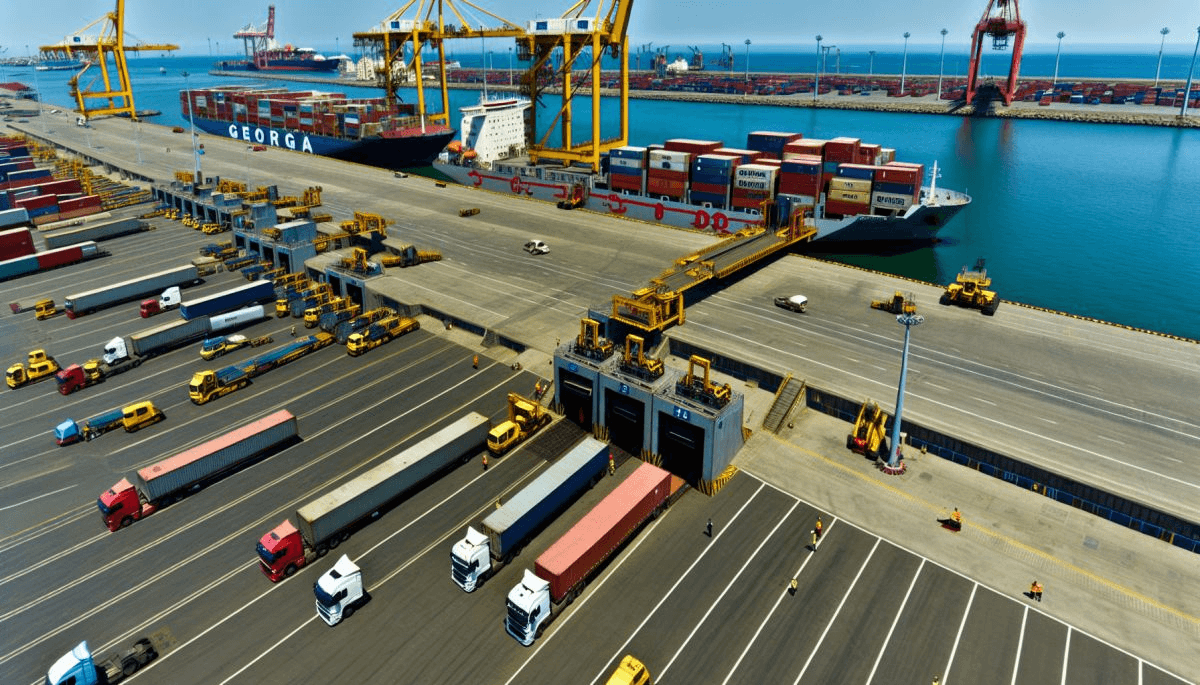The New Silk Road has brought a resurgence of trade between Europe and Central Asia, with Georgia serving as a pivotal logistics hub on this route. The country's geographical location, combined with its modern transport infrastructure, makes it an indispensable bridge between the continents. This article explores Georgia's strategic logistics routes and the crucial role played by maritime transportation, particularly through the ports of Poti and Batumi, in facilitating Ro-Ro shipping and other freight movements.
Georgia: The Gateway to Central Asia
Georgia's position on the crossroads of Europe and Asia marks it as a strategic gateway for trade routes that facilitate seamless transportation of goods. The implementation of the New Silk Road reflects the increasing global reliance on efficient passages between significant economic territories.
Key Ports: Poti and Batumi
The ports of Poti and Batumi are at the heart of Georgia's maritime transport network, offering reliable and diverse services that cater to a high freight demand. Poti, situated along the Black Sea, acts as a natural harbor, while Batumi port is a vital transit point that links maritime routes to rail and road networks. These facilities enable Georgia to manage a high volume of trade goods effectively, supporting both container shipping and project logistics.
Ro-Ro Transport in Georgia
Ro-Ro (Roll-on/Roll-off) shipping is a form of maritime transport where vehicles are driven on and off the ship. It is particularly beneficial for reducing loading and unloading times, thereby improving the efficiency of transport operations involving large and bulky items.
Ro-Ro shipping in Georgia offers a crucial advantage for regional trade, allowing for the expedited movement of cargo, especially between the countries of Europe and Central Asia. The strategic use of Bulgaria and Romania's ports creates a seamless connection with other regional logistics hubs such as Azerbaijan, Turkmenistan, Uzbekistan, and Kazakhstan.
The Role of International Freight and Turkey's Influence
Turkey plays a significant role in this international freight paradigm with its robust capabilities in marine logistics and the larger Turkish shipping industry. Georgian ports act as conduits for Turkey’s expansive trade reach, enhancing regional connectivity and fostering economic growth.
Enhancing Connectivity and Economic Growth
The trade routes through Georgia are instrumental in regional economic integration. They offer not just a corridor for goods but present possibilities for project logistics and infrastructure development that benefit multiple stakeholders within the region.
Georgia, with its advantageous position and modern logistics infrastructure, remains an integral player in the global supply chain, particularly in the connectivity between Europe and Asia. This dynamic facilitates increased trade, tourism, and investment opportunities that extend beyond regional boundaries.
In conclusion, Georgia's strategic role in the New Silk Road is underscored by its logistical capabilities in fostering container shipping and Ro-Ro transport, aided by the pivotal ports of Poti and Batumi. For more information about how these logistics solutions can support your business needs, visit Lider Shipping's website or explore their dedicated services page.

